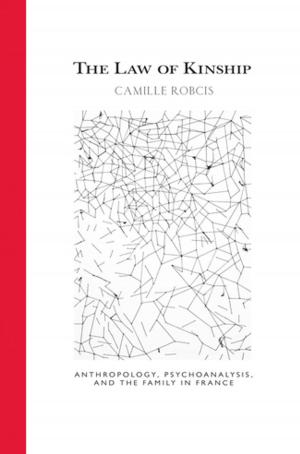Margery Kempe and the Lonely Reader
Fiction & Literature, Literary Theory & Criticism, Medieval, Nonfiction, Religion & Spirituality, Inspiration & Meditation, Mysticism| Author: | Rebecca Krug | ISBN: | 9781501708152 |
| Publisher: | Cornell University Press | Publication: | March 7, 2017 |
| Imprint: | Cornell University Press | Language: | English |
| Author: | Rebecca Krug |
| ISBN: | 9781501708152 |
| Publisher: | Cornell University Press |
| Publication: | March 7, 2017 |
| Imprint: | Cornell University Press |
| Language: | English |
Since its rediscovery in 1934, the fifteenth-century Book of Margery Kempe has become a canonical text for students of medieval Christian mysticism and spirituality. Its author was a fifteenth-century English laywoman who, after the birth of her first child, experienced vivid religious visions and vowed to lead a deeply religious life while remaining part of the secular world. After twenty years, Kempe began to compose with the help of scribes a book of consolation, a type of devotional writing found in late medieval religious culture that taught readers how to find spiritual comfort and how to feel about one's spiritual life. In Margery Kempe and the Lonely Reader, Rebecca Krug shows how and why Kempe wrote her Book, arguing that in her engagement with written culture she discovered a desire to experience spiritual comfort and to interact with fellow believers who also sought to live lives of intense emotional engagement.An unlikely candidate for authorship in the late medieval period given her gender and lack of formal education, Kempe wrote her Book as a revisionary act. Krug shows how the Book reinterprets concepts from late medieval devotional writing (comfort, despair, shame, fear, and loneliness) in its search to create a spiritual community that reaches out to and includes Kempe, her friends, family, advisers, and potential readers. Krug offers a fresh analysis of the Book as a written work and draws attention to the importance of reading, revision, and collaboration for understanding both Kempe’s particular decision to write and the social conditions of late medieval women’s authorship.
Since its rediscovery in 1934, the fifteenth-century Book of Margery Kempe has become a canonical text for students of medieval Christian mysticism and spirituality. Its author was a fifteenth-century English laywoman who, after the birth of her first child, experienced vivid religious visions and vowed to lead a deeply religious life while remaining part of the secular world. After twenty years, Kempe began to compose with the help of scribes a book of consolation, a type of devotional writing found in late medieval religious culture that taught readers how to find spiritual comfort and how to feel about one's spiritual life. In Margery Kempe and the Lonely Reader, Rebecca Krug shows how and why Kempe wrote her Book, arguing that in her engagement with written culture she discovered a desire to experience spiritual comfort and to interact with fellow believers who also sought to live lives of intense emotional engagement.An unlikely candidate for authorship in the late medieval period given her gender and lack of formal education, Kempe wrote her Book as a revisionary act. Krug shows how the Book reinterprets concepts from late medieval devotional writing (comfort, despair, shame, fear, and loneliness) in its search to create a spiritual community that reaches out to and includes Kempe, her friends, family, advisers, and potential readers. Krug offers a fresh analysis of the Book as a written work and draws attention to the importance of reading, revision, and collaboration for understanding both Kempe’s particular decision to write and the social conditions of late medieval women’s authorship.















